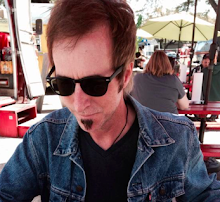You’ve been there. On a flight between somewhere and home,
seated next to a stranger on their way to some other place. Conversations are
usually light if they happen at all. We’re often trying to catch a nap or
speeding our way through some sort of work on the laptop before touchdown. But
this time I was seated next to a doctor who was winding down a practice he’d
only recently sold and headed into what he called “halftime”. His plan was to
start a new career. I couldn’t help asking him what he found the most rewarding
about the one he was exiting.
The doctor had been the chief medical officer of a fifteen
physician general practice with some areas of specialization but his primary focus
was family medicine. I asked, “What do you think have been the top medical
advances during you tenure?” His answer
was winding until he decided to focus on the most recent 10 years or so and
people.
He was hopeful about the big picture advances like the 2003
announcement that scientists had completed a draft sequencing of the human
genome, or all the genes that make up our DNA.
The doctor appreciated the increased application of minimally
invasive surgeries, laparoscopic surgery has become the norm for many
operations, including gall bladder removal, hernia repair and appendectomies
among other things.
And, medications like those that address sexual dysfunction,
“in the way that Viagra is used to treat erectile dysfunction,” he said.
I thought out loud, ”That’s quite a journey from mapping the
human genome to the bedroom. What do those things have anything in common?”
His answer was quick, “people.”
Of course, people.
It turns out that “relationship” is the thing he will miss
most about practicing medicine. He made
the connection this way:
Experts say sequencing each person’s genome would be
beneficial to prevent a variety of heart ailments and even obesity. “Just
knowing they have a higher risk of obesity could be enough motivation for
patients to lead a healthier lifestyle,” he said adding that it was one of the
Top 3 issues his clinic addressed with patients.
Laparoscopic surgery matters because patients generally
endure less pain, smaller scars and a shorter recovery period. “Patient types who
might have tried to live with their conditions in the past were more inclined
to seek treatment now. They feared missing work and losing jobs. Less recovery
time means less time off the job.”
The pilot interrupted our chat to announce our descent into Memphis.
So I asked, “Our time together is limited. I get the people part of the genome
and surgical advances but where’s the people part intersect with Viagra?” I
felt like an eighth grader.
“Relationships are about people. Medications like Viagra
have helped to restore intimate relationships between husbands and wives.” He
smiled and said, “These medications aren’t about feeling manly like some TV
commercial might suggest. I’ve prescribed them to couples that had drifted
apart. During counseling sessions I’d learned that they were no longer having
sex and that it was often about the husband’s being physically incapable of
performing. Men and women have written to tell me that a prescription to
address erectile dysfunction saved their marriage.”
Relationships. People. Of course, it’s why any advance in
medicine is relevant. And it’s also why social media matters. People want
access to information that might be helpful in treatment of a condition they’re
trying to manage or that might inform their ability to be useful to a friend or
family member who suffers a medical condition.
Access to information from a trusted voice, like their doctor, could be the advance in medicine that makes the biggest difference in the life of someone in your patient community.
Map their genome? You may not be doing a personalized
sequencing but we’re all learning from those who are.
Prescribe the right medication? Sure, that’s most likely
within your realm of authority.
Sharing information that’s helpful? You can. You’re one of
the most important people or relationships in a patient’s life. And advances in
the use of social media for that purpose have made it one of (what may someday
prove to be among) the top advances in medicine.
Sources:
· A passenger on Delta Airlines Flight 3743, Row
3, Seat A, Stanford University and CNN Health News
